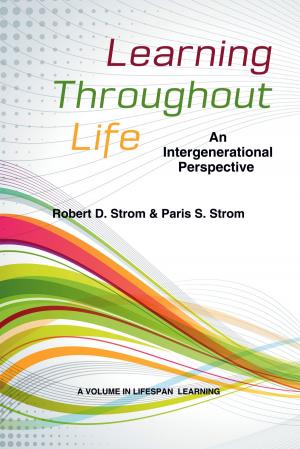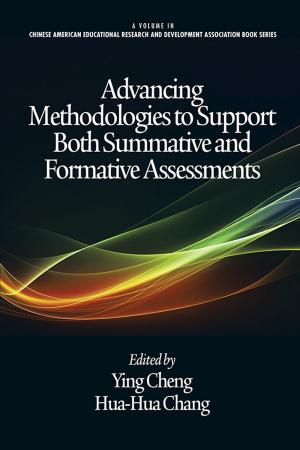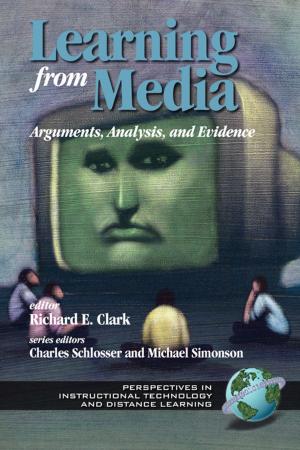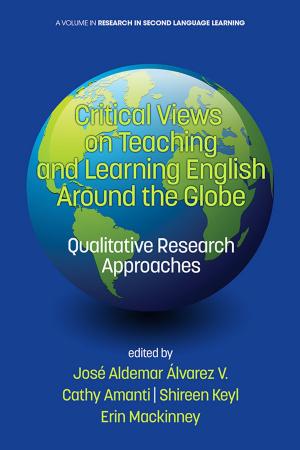Education Redux
How to Make Schools Relevant to Our Children and Our Future
Nonfiction, Reference & Language, Education & Teaching, History, Higher Education| Author: | Eli Fishman | ISBN: | 9781607524069 |
| Publisher: | Information Age Publishing | Publication: | February 1, 2010 |
| Imprint: | Information Age Publishing | Language: | English |
| Author: | Eli Fishman |
| ISBN: | 9781607524069 |
| Publisher: | Information Age Publishing |
| Publication: | February 1, 2010 |
| Imprint: | Information Age Publishing |
| Language: | English |
Education Redux is a timely and incisive work answering the myriad of questions about the future of America. It is a general interest book of particular consequence to the current political and education debate. The U.S. is facing a surfeit of crises—social, political, economic and environmental. These challenges continue to be met with traditional shortterm, feelgood, snake oil remedies. None of these actions begin to address the real structural problems in the U.S. economy or in its schools. Education Redux examines the evolution of our economic despair. The popular perception is that the definitive cure is better education. There is a problem. K12 schools do not work. Per student spending, on a constant dollar basis, is up 600% over the past few decades. Yet, standardized test scores remain flat. The proposed solutions never change—more money, better teacher performance, more parental involvement. Researchers dependably provide nothing more than minor variations on these themes, reiterating hackneyed predicaments and fixes. The school problem is essentially twofold. First, school curriculum and instructional design are incompatible with the predisposition of the New Kids (Millennial cohort). Second, schools are perceived by students as not relevant. Education professionals treat schools as though they operate in a vacuum, which is a lethal error. School reform agendas have to be responsive to students within the context of social and economic realities. The loss of gainful employment opportunities in our economy is directly related to the dismantling of the American manufacturing sector. The restoration of a 21st century manufacturing economy is predicated on our ability to infuse young people with the technical and entrepreneurial skills necessary to pursue productive careers. For the New Kids, video games define their reality. Games are based on skill, not following orders. Education Redux offers an operational guide, predicated on the use of uptodate video game technology, for making schools both relevant and enjoyable. The requirement for individual expression and building a community through the development of group skills can be attained using a program called the eOneRoom Schoolhouse. Education Redux is the product of comprehensive research by the author, who has extensive formal training and experience in manufacturing, finance, teaching and community affairs. The book answers questions most people are afraid to ask.
Education Redux is a timely and incisive work answering the myriad of questions about the future of America. It is a general interest book of particular consequence to the current political and education debate. The U.S. is facing a surfeit of crises—social, political, economic and environmental. These challenges continue to be met with traditional shortterm, feelgood, snake oil remedies. None of these actions begin to address the real structural problems in the U.S. economy or in its schools. Education Redux examines the evolution of our economic despair. The popular perception is that the definitive cure is better education. There is a problem. K12 schools do not work. Per student spending, on a constant dollar basis, is up 600% over the past few decades. Yet, standardized test scores remain flat. The proposed solutions never change—more money, better teacher performance, more parental involvement. Researchers dependably provide nothing more than minor variations on these themes, reiterating hackneyed predicaments and fixes. The school problem is essentially twofold. First, school curriculum and instructional design are incompatible with the predisposition of the New Kids (Millennial cohort). Second, schools are perceived by students as not relevant. Education professionals treat schools as though they operate in a vacuum, which is a lethal error. School reform agendas have to be responsive to students within the context of social and economic realities. The loss of gainful employment opportunities in our economy is directly related to the dismantling of the American manufacturing sector. The restoration of a 21st century manufacturing economy is predicated on our ability to infuse young people with the technical and entrepreneurial skills necessary to pursue productive careers. For the New Kids, video games define their reality. Games are based on skill, not following orders. Education Redux offers an operational guide, predicated on the use of uptodate video game technology, for making schools both relevant and enjoyable. The requirement for individual expression and building a community through the development of group skills can be attained using a program called the eOneRoom Schoolhouse. Education Redux is the product of comprehensive research by the author, who has extensive formal training and experience in manufacturing, finance, teaching and community affairs. The book answers questions most people are afraid to ask.















